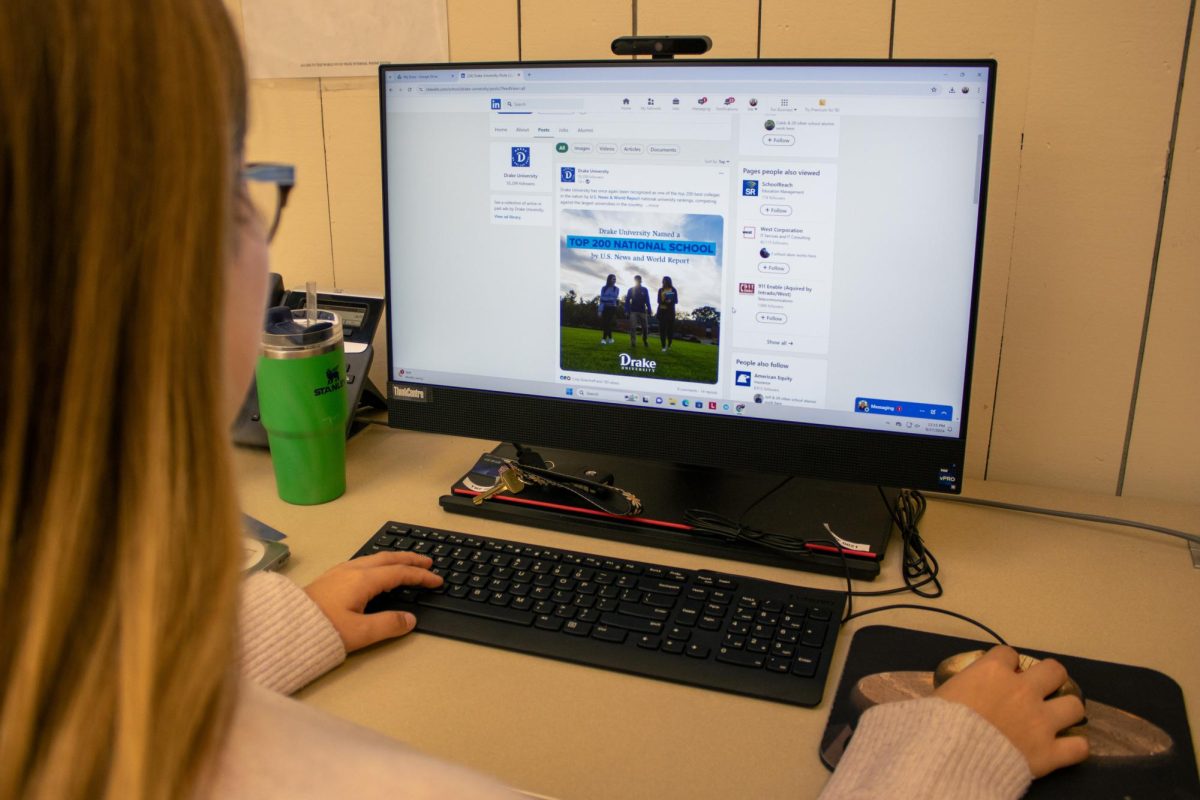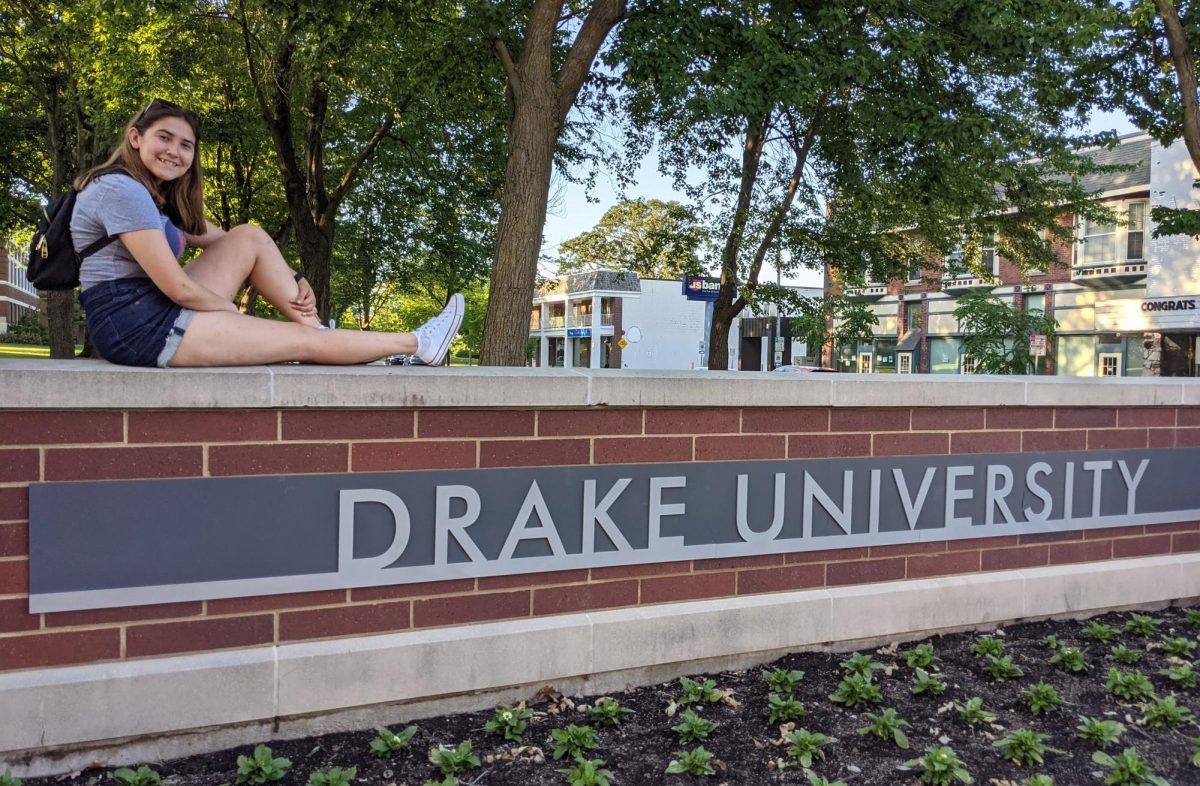In my first year at Drake, I found myself, a double major in multimedia journalism and business studies, questioning if I was capable of finding a legitimate career path in either realm.
In the School of Journalism and Mass Communication, I was told by professors that doors into the professional journalism realm were few and far between. According to those same professors and peers, your connections were all that mattered. In the Zimpleman College of Business, the story was similar. Sure, there were more doors, but if I truly wanted to push into something like the sports marketing world or pursue an MBA post-grad, my industry connections were all that mattered. And the only way to find those connections? Networking.
There was one glaring issue with this sentiment, at least for me. I didn’t have any industry connections, and I didn’t understand what “networking” actually meant.
Now, three full-time summer marketing internships and two part-time internships later, I’ve learned that “networking” and “connections” are nothing more than buzzwords thrown in the faces of students struggling to enter the professional world. Nobody seems to truly know what they mean, other than the easy promise that simply networking will cause internships and job offers to fall right into your lap.
Hence my reasoning behind writing this article: There’s a much easier, clearer way to go about connecting yourself with the right people.
For a moment, I want you to consider a new buzzword-filled strategy: Recognize your resources and create a competitive edge.
Here in college, we have an abundance of resources that we tend to either ignore or fail to notice. At first glance, you’ll think of resume workshops, networking events and professional seminars. While all of those are incredibly useful in this stage of life, it goes deeper than that.
In every school within Drake, there exists a plethora of professors who have industry experience, connections and shortcuts under their belt. Students tend to forget that any person, professor or not, likes being asked for advice. It’s human nature.
Beyond that, these professors are quite literally paid to help you succeed professionally. And due to that, I’ve often visited the offices of professors within my desired field to ask for any advice and connections. Nearly every time, I left the meeting with a list of people to contact. And in each of those initial emails and calls, I was able to say, “Professor so-and-so recommended I speak with you.”
While this sounds like classic networking, it gives you a unique competitive edge over your peers. Instead of shooting out emails into oblivion or being the 40th student to give their elevator pitch to a hiring manager at a networking event, this creates a personal, trustworthy connection. This strategy — having the competitive edge of someone vouching for me — led to three of my five internship experiences.
My father, a chief human resources officer who taught me just about everything I know about professional advancement, once explained an important truth to me: Managers don’t want to go through the recruiting process.
Reviewing countless resumes, holding countless interviews and deciding on a candidate they’ve often never met is a time-consuming and risky process. Thus, the key is to give them a path out of that — give them a reason not to go through the recruiting process.
In my experience, getting to the company or manager before they push out the application or even think of creating one is a gamechanger. By visiting those professors and peers and getting those crucial contacts, I was able to give the managers who could use an intern a perfectly suitable candidate before they had even posted the job.
One of my experiences wasn’t even a job they had planned. After connecting with the vice president of marketing for a company through a mutual friend and expressing my desire to join a team like theirs in an intern role, that vice president worked with human resources and created a marketing intern position on the spot.
You need to go beyond classic job searching. If it’s posted on job sites, there are candidates who have applied that are as good as you, if not better. And while you can still get those positions with a great resume, interview and experience, your success rate will be significantly higher if you personally reach out with that recommendation edge.
Through my experience, the experience of countless colleagues and experts I’ve spoken with and the expertise of my father — a man with decades of experience in hiring executive-level employees and developing company-wide HR practices — I’ve honed the process down to a few simple tricks. And even so, this is just the first among countless skills — resume building, cover letter writing, interview mastery, etc. — that can push you ever so slightly further in your professional endeavors.







